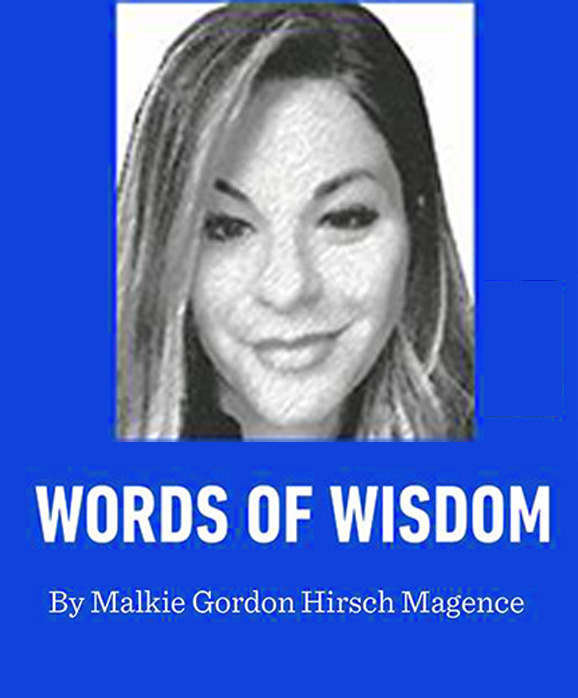Lessons From The Ohel
By Malkie Gordon Hirsch Magence
Last week, after a friend found herself in the thick of some dating drama, we decided to take a spontaneous trip to the Ohel.
Because sometimes, all the relationship advice and the self-help books on manifestation mean nothing next to the power of prayer.
The Ohel is a place I’ve frequented for longer than I can remember. One of my earliest memories is removing my shoes for the slippers they provide and sitting at the long wooden benches to write down names of loved ones and the prayers I wanted to focus on.
Each visit reveals something new—or maybe just something I hadn’t noticed before. This time, I saw people knocking on the door of the Rebbe’s kever, and I found myself wondering: Is that a new practice? Or just a detail I never picked up on, like when you reread a familiar story and something suddenly jumps out at you.
These days, I’ll admit my favorite cemetery pastime is a little unconventional: headstone hopping.
Yes, I might be that person zooming in on last names and snapping photos to post with the caption, “Anyone related?”
(No need to answer that.)
This cemetery was first introduced to me by my father, who brought me to visit our great-grandparents, including my namesake. Later, it became the resting place of the Rebbe—a man of immense spiritual insight and influence. The kind of leader whose legacy continues to draw people from all walks of life.
You can feel that weight of collective yearning as people lean their tear-streaked faces against the cold stone, surrounded by mounds of torn paper filled with heartfelt requests:
Help. Happiness. Hope. Health. Faith.
In the chaos of everyday life, we forget we don’t need to have all the answers. That it’s actually okay—more than okay—to surrender that pressure.
There’s something healing about standing there, thumbing through Tehillim, reciting kapitlachcorresponding to each of my kids’ ages—plus one, almost as if to will their lives to keep moving in a good direction.
People watching at the Ohel is unmatched—and yes, there are snacks.
To my right sat a woman with what looked like a dissertation. Pages upon pages. I left to visit the Rebbe’s kever, spent a good 45 minutes there, and when I returned, she was still at it. Turns out it wasn’t a research paper—it was her extended family tree. And something told me she might be there all day.
Across from us was a young couple. The guy leaned over, whispering instructions to his girlfriend. It was tender, seeing someone guide another through a ritual he found meaningful. Watching them, I wondered how long before their engagement photo would be snapped—as they all are—in front of my great-grandfather Yochanan’s kever.
We were there on a random Wednesday afternoon, and I was stunned by how full it was. Part prayer hub, part social club. The more I looked around, the more I understood why faith matters so deeply.
It gives us something we often forget we need:
Permission to stop trying to solve everything ourselves.
Faith, combined with a sense of belonging, is a powerful balm. Whether we’re healing from trauma, grappling with grief, or just trying to make it through the unpredictability of life, prayer gives us an outlet. A reset. A reminder that we’re not alone.
That day at the Ohel, we were all different. Each person carrying their own burdens, their own stories, their own hopes. And yet, we all landed on the same answer:
Talk to G-d. Together.
It’s funny—cemeteries aren’t typically thought of as uplifting places. But that day, surrounded by strangers whose pain and prayers echoed my own, it was anything but sad.
It felt like hope.
Malkie Gordon Hirsch Magence is a native of the Five Towns community, a mom of five, a writer, and a social media influencer.









